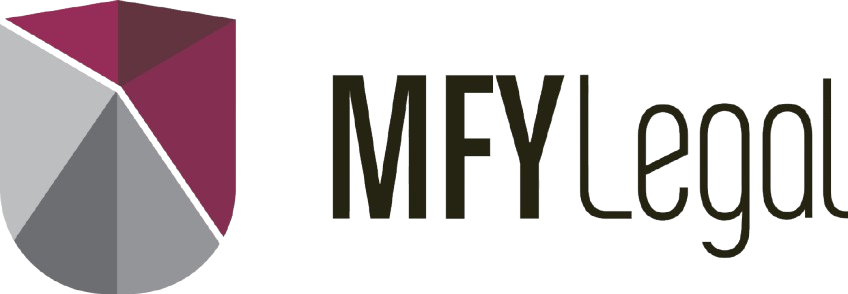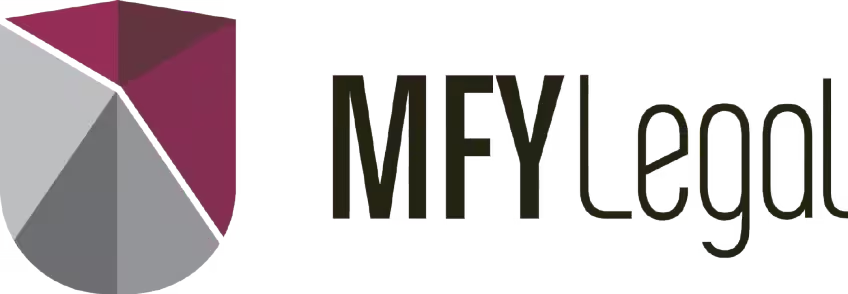Access Blocking and Content Removal Guide
Publication Date: April 18, 2025 |
Updated: August 6, 2025 |
- Articles
| 9 minutes
In the internet age, protecting privacy and personal rights is as vital as the freedom to access information. Unlawful content on digital media can seriously threaten the reputation of individuals, the brand value of companies and public order. In such cases, the Turkish legal system activates mechanisms for access blocking and content removal.
This guide explains all the processes in a simple and understandable way, including current legislation, ways of implementation, sample decisions and technical details.
What is an Access Block?
An access block is the making of certain internet content inaccessible from Turkey. It is usually imposed by court order or, in some cases, by administrative decisions. Technically, blocking is done on the basis of IP address, URL or domain name.
Basis Law Law No. 5651 (Law on the Regulation of Publications on the Internet)
What is Access Blocking According to Law No. 5651?
What is Content Removal?
Content removal is the process of removing a publication completely from the internet. It differs from blocking access in that the content is not only made invisible, but also removed from the origin server.
The publisher, website owner, social media platform or news source can be contacted directly. If there is no result, a court order is required.
In Which Situations Can Access Blocking or Content Removal be Requested?
- Defamation, slander and violations of personal rights (Art. 5651/9)
- Assault on the right to privacy (5651/9.art. – Urgent Intervention)
- Fake news and manipulative content
- Sexual abuse, Gambling Content or obscenity
- Copyright or trademark infringements
- Terrorist propaganda or content that threatens public safety
- Encouraging the Use of Drugs and Stimulants
- Crimes Against Atatürk
- Referral to Suicide
- Introducing substances hazardous to health
Who Can Apply?
- Natural persons (citizens)
- Legal entities (companies, institutions)
- Authorized representatives through a lawyer
- Public institutions
- ICTA (for administrative access restrictions)
How Does the Application Process Work?
- Infringement Detection: A link to the content, screenshot and date/time record is taken.
- Application to the Platform (Optional): A request for content removal can be submitted to social media or news sites.
- Application to the Criminal Judge of Peace: Within the scope of Law No. 5651, an application is made with a petition.
- Decision and Implementation: The judge’s decision is transmitted to the ICTA and implemented by service providers.
- Appeal and Feedback: The decision can be appealed within 7 days.
LEGAL REMEDIES
Application to the Content Provider
- The news website, blog or social media platform that shared the news is contacted in writing.
- In particular, the “content violation complaint forms”of platforms such as Instagram, X (Twitter), YouTube and Google can be used.
Access Providers Association (ESB) Application
- A content removal and/or access blocking request can be made via https://www.esb.org.tr (especially within the scope of Law No. 5651).
- In general, if there is a violation of privacy, access can be blocked within 24 hours.
Application to the Criminal Court of Peace (Court)
- You can apply to the Criminal Judge of Peace with a petition requesting the removal of content on the internet or blocking access.
- The screenshot, URL, date/time and the violated personal right must be clearly written in the petition.
- Request: “To remove the content at the following address, which constitutes an attack on my personal rights, and to block access to it.”
Compensation Lawsuit
- In addition to content removal, if moral damages have occurred, a compensation lawsuit can be filed in the Civil Court of First Instance.
Criminal Investigation
- If the content contains insults, threats or slander, a criminal complaint can be filed with the Public Prosecutor’s Office.
IMPLEMENTATION PHASES
Through the Court (5651/9)
- Application to the Criminal Court of Peace
- Explanation of the grounds and the violation
- Providing the relevant URL or content link
- If the court deems it appropriate, it will issue an access blocking order
ESB (Association of Access Providers) Application (If there is a violation of private life)
- Apply at https://www.esb.org.tr
- Authentication
- Decision within 24 hours
BTK Ex officio (within the scope of Article 5651/8)
- ICTA blocks access upon the request of the relevant public institutions or ex officio
EXAMPLES
- You have been falsely reported
- Your ex-partner published a private photo of you
- Content defaming your company name published
- Advertising counterfeit medicines
- Child abuse content
- Access Ban Request for Insulting Post on Instagram
- Removal of Content Due to Infringement of Personal Rights in a YouTube Video
- Court blocks access to false information spread on Twitter (X)
- Removal of a Court Decision Published Years Ago from Search Results
- Content Removal Due to Company Defamation Sharing Contrary to Competition Law
- Violation of the right to privacy by a photograph published on Facebook
- Removal of Headlines About You in Online Forums (Ekşi Sözlük, Reddit)
- Request for Removal of Disparaging Workplace Comment on Google Maps
Frequently Asked Questions
Can content be removed without going to court?
Yes. Content can also be removed by using the “complaint and violation notification” section of the content provider or platform.
Can an application be made through the ICTA?
Yes. Especially for urgent content such as obscenity and child abuse, applications can be made directly to the ICTA.
Can foreign content be removed?
Content can be blocked from Turkey. Platforms such as Google, Facebook, X (Twitter) can cooperate.
Access Blocking from Turkey for Foreign-Sourced Content
Can Content Be Removed Without Going to Court?
Yes. You can request content removal through the complaint systems of social media platforms or news websites. However, in most cases, the legal process is recommended as it will not yield results.
How to Implement Access Blocking for Social Media Content?
Can I Delete Old and Outdated News?
Yes. For old content that violates your personal rights, a content removal lawsuit can be filed under the right to be forgotten.
Removal of Old Content from News Websites
How to Remove Content from Google?
Removal from search results may be possible through Google’s “content removal request form”.
How to Request Content Removal from Google?
In Which Situations Does Law No. 5651 Apply?
This law allows access to be blocked in special cases such as defamation, obscenity, child abuse, and incitement to suicide.
What is Access Blocking According to Law No. 5651?
I was insulted on social media, what can I do?
Screenshots should be taken, evidence should be identified through a notary/lawyer, and then a blocking of access lawsuit should be filed.
Content Removal Due to Insult and Violation of Personal Rights
What is the Right to be Forgotten? Can Everyone Use It?
This right, which is enshrined in European Union law, is also applied in Turkey through judicial decisions. Can be used for old content.
Right to be Forgotten and Removal from Search Engines
Is it possible to apply to the ICTA for obscene content?
Yes. In cases of child abuse and obscene content, it is possible to apply directly to the ICTA without the need for a court order.
Access Blocking Process for Inappropriate or Obscene Content
Can Content on Websites Abroad be Removed?
For content hosted abroad, it is difficult to remove it directly, but an access blocking order can be obtained from Turkey.
Access Blocking from Turkey for Foreign-Sourced Content
How long does it take to take a decision?
Criminal Judgeships of Peace usually give a decision within 1-5 days. In urgent cases, results can be obtained within hours.
Can an Access Blocking Decision be Appealed?
Yes. You have the right to appeal to a higher criminal court of peace within 7 days of the decision being notified to you.
Court Decision Examples
1. Constitutional Court Decision – 2019/20812
Subject: Allegation that the decisions to block access to websites violate freedom of expression and freedom of the press.
Summary: The applicants claimed that the access blocking decisions were unjustified and did not specify which provision of law they were based on, which constituted a disproportionate interference with freedom of expression. The Court emphasized that such decisions must be based on verifiable grounds.
Source: ? https://kararlarbilgibankasi.anayasa.gov.tr/BB/2019/20812
2. Constitutional Court Decision – 2021/61788
Subject: Exceeding the scope of an access blocking order against content published on a news website and freedom of expression.
Summary: The applicants stated that the blocking of access only through their own internet address, whereas the blocking of other connections that are not content providers constituted a violation of rights. The Court held that the principle of proportionality was violated.
Source: ? https://kararlarbilgibankasi.anayasa.gov.tr/BB/2021/61788
3. Constitutional Court Decision – 2015/9536
Subject: Application for violation of freedom of expression on the grounds that the decisions to block access to websites were unjustified and arbitrary.
Summary: The applicants argued that the access blocking decisions lacked legal basis and justification and violated their freedom of expression. The Court stated that the decisions must be based on sufficient grounds.
Source: ? https://kararlarbilgibankasi.anayasa.gov.tr/BB/2015/9536
4. Constitutional Court Decision – 2016/1430
Subject: Whether access blocking decisions under Law No. 5651 violate freedom of expression.
Summary The Court ruled that direct access blocking decisions in cases where the content does not clearly constitute a criminal offense constitute an interference with freedom of expression and found a violation.
Source: ? https://kararlarbilgibankasi.anayasa.gov.tr/BB/2016/1430
5. Constitutional Court Decision – 2015/8234
Subject: The scope and legality of access blocking decisions regarding posts on social media and various websites.
Summary: The applicants argued that the access blocking decisions were broad and vague and disproportionately restricted their freedom of expression. The Constitutional Court emphasized the need for proportionality and target-orientation in access blocking decisions.
Source: ? https://kararlarbilgibankasi.anayasa.gov.tr/BB/2015/8234
Why is it Important to Manage the Process with a Lawyer?
It is important for the success of the process to have the support of an expert lawyer to ensure that the legal language is correct, the process proceeds quickly and the decision is implemented effectively.
At MFY Legal, we expertly handle your content removal and access block applications.
Related area
Related persons

Legal Information
This Briefing is for Informational Purposes; it is not Legal Advice. If You Have any Questions, Please Contact Us. All Rights Reserved.
You May Be Interested In



